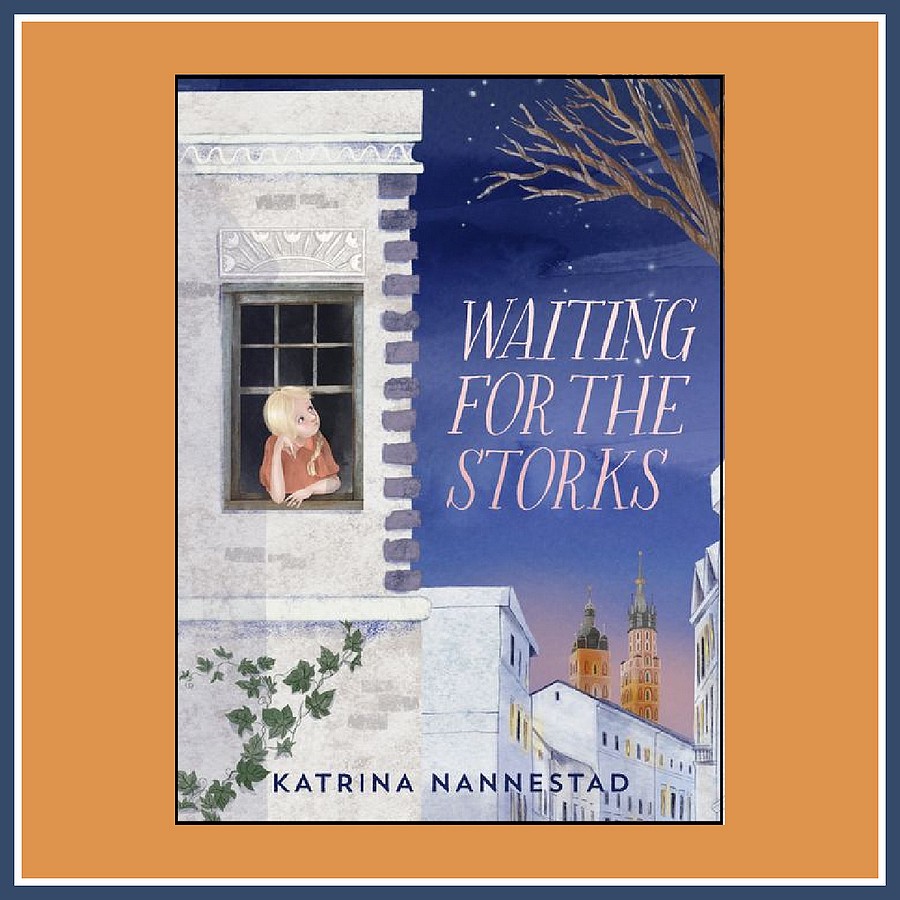
Waiting for the Storks by master storyteller Katrina Nannestad with Illustrations by Martina Heiduczekis and published by HarperCollins is Katrina’s third historical fiction title which is inspired by an event during World War 2 and sensitively, yet powerfully, explores this from a child’s perspective. This book, recommended for readers 12+ is inspired by real people and real events. Meticulous research has been undertaken to make the story historically accurate by retelling what life was like under Himmler’s Lebensborn Program which was established to satisfy Hitler’s desire to build a strong and pure German population. One method employed to achieve this was to steal children to bolster the German population. This book follows the story of blond hair and blue eyed Zofia Ulinski, a polish girl, stolen from her home and family, stripped of her name, culture, language and identity to be raised by a German family. Interwoven into this story is the significance of choices and the consequences they carry – some dire and others seeming inconsequential, but have the potential to be life altering.
This story begins by painting a clear picture of what life was like for eight year old Zofia, who lives with her Tata, Mama and Aunty Barbara, all sharing a happy and close relationship. They live in their home in Krakow, in German occupied Poland. While out with her mama, Zofia captures the attention of the German soldiers who later pay a visit to her home and drag her away from her family. They throw her in the back of a truck where she joins other children who have also been ripped away from their families.
This story then follows these children and touches on the different fates that befall them. All children are forced to stop speaking Polish and given harsh punishments if they do not speak in German. They are taught German by a cruel teacher, Herr Lehrer, who is merciless in his approach and punishments. The children are examined by a Doctor who checks their measurements as well as their physical attributes. They are also assessed to gather information about their intelligence and personality type. This medical team is working to determine who are considered “racially valuable” or “undesirable” (these appalling and vile terms are not used in the book). Katrina points out in her Author’s Note that, “None of the assessments were founded on real science or medicine. The entire process was ridiculous, immoral and disastrous for all the children involved”.
Zofia who is renamed Sofia (and taught a story about how she came to be adopted by a wealthy German couple) is adopted by Dr Engels and his wife, who live luxuriously in the countryside. It is fascinating and heartbreaking to follow Zofia’s journey, how her attitude changes towards Germans, Hitler and her transformation as she is indoctrinated with German propaganda and severely punished when she does not comply. Survival means taking on the role of a German character in this new fairy tale life with this new family.
Zofia’s new life and idyllic experiences fill her mind and heart. Her former life and Polish past is buried deep within her and comes bubbling to the surface (much to her surprise) when she meets a Polish boy, Tomasz, a slave on her friend’s farm.
Throughout the story Zofia is conflicted as she grapples with living a constructed lie and betraying her true identity to simply survive.
This story, like Katrina’s former two historical fiction titles, shows seemingly small acts of kindness can have a ripple effect with far reaching positive consequences. Even though this story explores the unimaginable horrors of war and the human face of war, it does this in an accessible and sensitive way for children. It is also a story that contains hope and highlights the power of courage, love and friendship.
A teaching guide for Waiting for the Storks is available on the publishers website here.
A review for We Are Wolves is on the Reading Opens Doors blog here.
A review for Rabbit, Angel, Soldier, Thief is on the Reading Opens Doors blog here.
